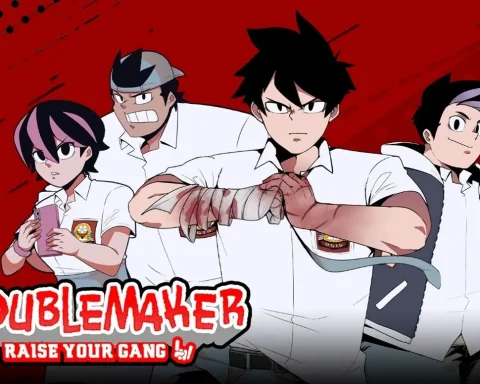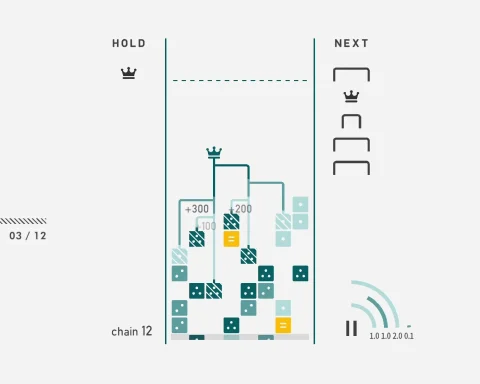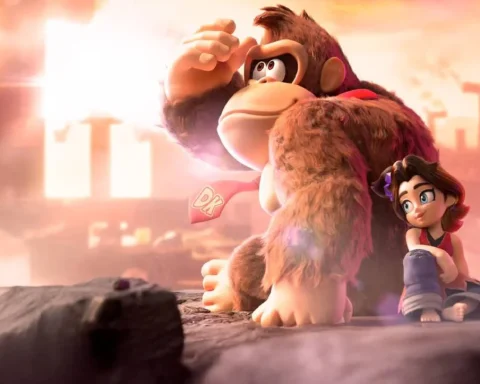We all agree that child soldiers are a bad thing, correct? We all understand that basic human rights dictate that children should be kept free of the horrors of conflict, and we all look at what happens in places like, say, Africa and the Middle East, and react with horror and what we see children subjected to in those places.
And in the west there was certainly enough concern when it was revealed that everyone’s favourite boogeyman, ISIS, was using video games both to further its own agenda, and to target and recruit dissatisfied kids to its abhorrant cause. As there should be. Games are the dominant media that kids consume these days, and you only need to look at the research that is going into gamification to realise that yes, games can be used to encourage behaviours or shape ideology. As has been the case with literature, film, theatre, the visual arts, ballet, rock music, the opera, and every other art form you can imagine, games are, potentially, a very powerful propaganda tool. Because they influence, inspire, awe and amaze.
So we are rightfully concerned when the “bad guys” start using games and participating in the gaming culture in order to recruit themselves new soliders. And it is in that context, that I suggest you have a look at the image below, and let’s see if you can figure out what is deeply disturbing to me about what I saw in it.
 |
| Photo credit to Twitter user @RType88 |
This photo was taken in England, at a recruitment stand. But it’s genuinely creepy, because it has an army dude actively advocating to a child who must be ten years old (if that). And it happens year after year at gaming shows, without anyone even batting an eyelid at it going on. For the past couple of years the Australian Armed Forces has seen fit to attend the EB Games Expo as official exhibitors. Each year they get up on stage to party hard with gamers over Call of Duty, Halo, eSports and so on, and this year they had promotional posters all over the place to boot. Over in the US, too, the military is deeply involved in video games, and has been for many years now – it was way back in 2002 that it producted its America’s Army recruitment tool.
I find this deeply problematic. It’s not so much the basic idea that the armed forces would turn up, though. It’s obvious why they’re there. After all, there’s is an overwhelming weighting towards youth in terms of who attends these expos and events, which makes them a lucrative opportuntiy for anyone who relies on the youth for their business – which does happen to include the military recruiters (they don’t want 40 year old first tme soldiers, after all). So on the marketing and PR side of things it’s really not surprising that the various armed forces have figured out they have good success in being associated with gaming culture.
The problem is more core than that. The problem is what associating the real military with gaming tells us about the games the industry produces en masse. The problem is that in participating in these events and in building games within popular genres themselves, the military is directly gamifying real-world conflict. It is, effectively, standing up on a podium and yelling “do you like Call of Duty? Well, ‘cmon over here and do the real thing, kiddies!”
 |
| We like to tell ourselves this is different. |
That disturbs me. Not just because it leads to images in this story, either. It disturbs me because it tells me that all that time we spend demanding that people outside of the games industry realise that games are just fantasy is something that we don’t really believe ourselves. Using video games as a lead generator for army recruits means that there is something that we all understand about video games; that they help inspires people to actually join the military. Otherwise these attempts by the militaries simply wouldn’t work, and they would have stopped participating in gaming culture back in 2002.
It’s the fact that it does work that is the problem. It’s the idea that the promotion and marketing of real-world conflict and video games share so much in common that is disturbing. The fact that we have images like the two above, that share so much composition in common with one another, is genuinely disturbing, and I do not believe it is something that a mature games industry would want to be a part of.
When you’ve got events like EB Games Expo in Australia, which have a dedicated “family day,” you have to wonder at the wisdom of allowing the military to use it as a propaganda platform. We don’t allow our children to be exposed to advertisements for condoms and sex hotlines. We lock those away for only the latest of late night TV. Similarly, we’ve banned the advertisement of cigarettes because, in no small part, we were deeply concerned that children were being encouraged to take up smoking because those ads made smoking look and sound “cool.”
 |
| MGS V: Child Soldier |
So why on earth are we allowing, if not encouraging, the army to whisper into the ears of our children? When we are so incensed by the idea of ISIS, or any other militant group, distributing video games as a recruitment tool, presumedly because we understand the affect it might have on children, why are we doing the exact same thing to our own children? When we are so revolted by the idea of child soldiers, why are we letting our children play with guns under the guise of it being at a game show?
And, given that we in the games industry are so concerned with the way women are portrayed in the media (rightfully so), how can we not be concerned as other examples of the games media actively court nationalism and heroise the military to the point where the military actually latches on to it as a recruitment device? Where is the concern when games are used to negative social effect elsewhere?
Seriously. Let’s try and keep these war games as fantasies, and let’s try and let kids enjoy them without turning them into a recruiting tool. Let’s not give the Australian military a booth at next year’s EB Expo, or anywhere else in the world that there are parasitic military forces that are using games to deliberately try to confuse children into thinking Call of Duty and a tour of the Middle East are as entertaining as one another.
– Matt S.
Editor-in-Chief
Find me on Twitter: @digitallydownld







